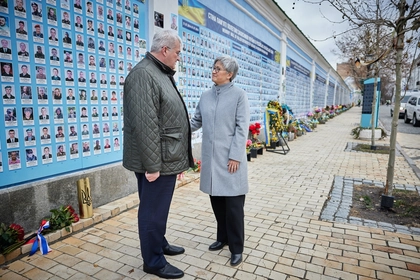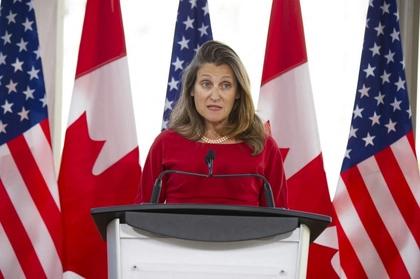An investigation has found that the Kazakh-based Analyst Research Consulting (ARC) Group is servicing French aviation equipment to keep Russian military aircraft flying, despite Western sanctions. Details of the scheme, which is helping to maintain Su-30SM fighters, were revealed by the international non-governmental investigative organization (NGIO) “InformNapalm” in a report on Sept. 12.
The Su-30SM relies on essential French-supplied systems manufactured by the Thales and Safran Groups. These include critical components such as the SMD55S and SMD66S multifunctional liquid crystal display (LCD) panels, TLS2020 multi-mode receivers, TACAN-NC12 tactical navigation systems, HUD 3022 head-up displays, and SIGMA 95NAA high-precision inertial navigation systems.
If these systems aren’t maintained properly, the Russian aircraft would effectively be non-operational or, as the InformNapalm report states: “Without this equipment, Russian pilots would be flying blind.”
Su-30SM fighters are a crucial component of the Russian Air Force and support its operations in the Kremlin’ so-called special military operation (SVO). According to the NGIO, Moscow has around 130 of the aircraft of which at least 15 have been lost over Ukraine – the latest being on Sept. 11 in the Black Sea.
In its dossier on the issue, InformNapalm published copies of documents that show how the ARC Group has been bypassing sanctions on behalf of Moscow to repair and maintain French aviation equipment. The Kazakh company employs certified technical specialists that have been trained on the systems by the manufacturers.

Australian Foreign Minister Visits Kyiv, Confirms Reopening of Embassy

The investigation shows that a contract signed between ARC Group and Russia’s Rosaviatspeckomplekt to repair French-made components installed in the Su-30SMs in 2021 is still active. An appendix to the contract lists specific military products imported to Kazakhstan in 2021 for repair, including devices for pilot navigation.
A director from ARC Group, Aldanazar Saginbek, is quoted as saying Kazakh experts were trained by Thales in France between January and February 2023 where they received theoretical and practical training leading to full certification to service the French systems.
InformNapalm has identified eight technicians who, once training was complete, regularly traveled to Russia to carry out maintenance tasks on the sites where the aircraft are based.

The ARC Group, which was established in 2014, claims to be “the exclusive distributor of Safran Electronics & Defence in the Republic of Kazakhstan and the Republic of Kyrgyzstan and promotes Safran products in these countries.”
Despite both Thales and Safran announcing their withdrawal from Russia and an end to the supply of components following Russia’s February 2022 full-scale invasion of Ukraine, they are still providing equipment and knowhow to the ARC Group, ostensibly to support Kazakhstan’s 43 Su-30SM fleet. This contrasts starkly with the ARC commitment to service 88 Su-30s in 2023.
The contracts with the Kazakh company explicitly require it to abide by French export control regulations which prohibit the transfer of goods and services to the Russian Federation.
The findings raise concerns about the effectiveness of sanctions against Russia’s military aviation industry when third country parties are willing to covertly enable the continued support to Russia and its military forces.
The InformNapalm report warns of long-term security issues if steps are not taken to further enforce sanctions to prevent such action. It urges French and other national and international authorities to investigate and address these violations. It has offered to release the full package of documentation relating to the issue.
You can also highlight the text and press Ctrl + Enter






